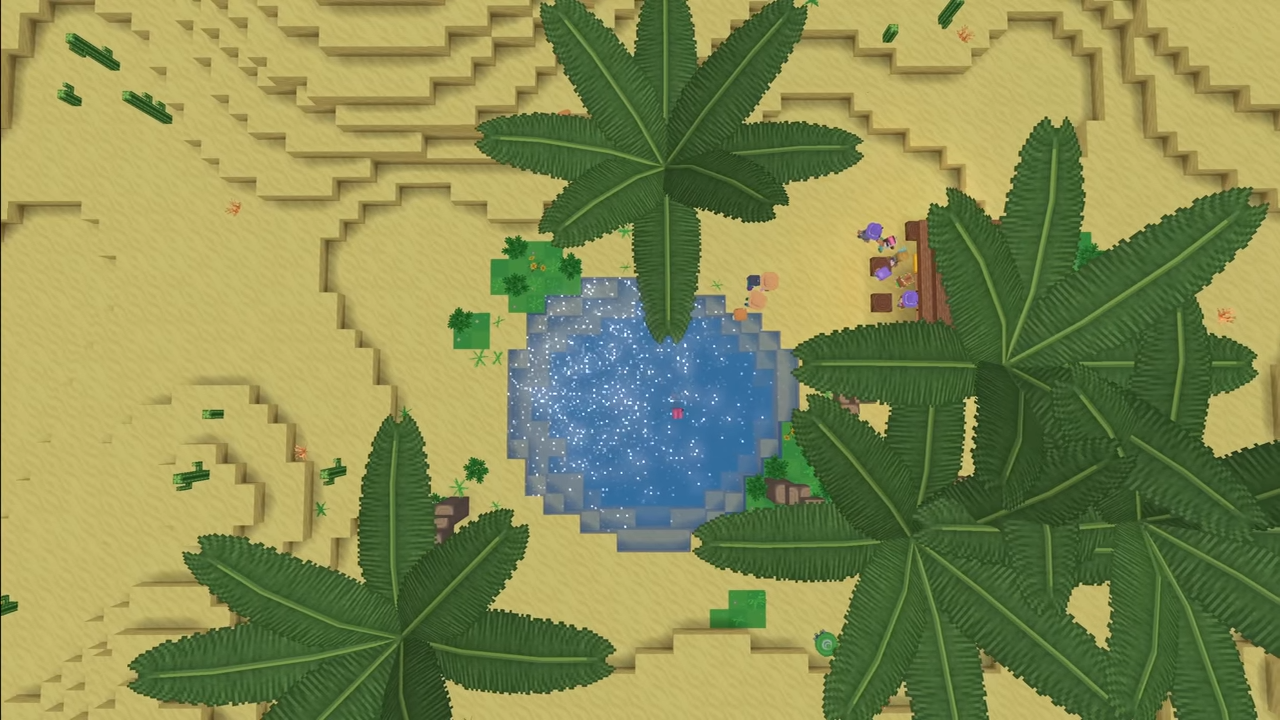ChatGPT maker OpenAI acquires open-source Minecraft clone which I found out about from an article written by ChatGPT
This article was not written by AI. Pinky promise.

I mean, sometimes the whole story really is in the headline. OpenAI, the software company best-known for the various iterations of its ChatGPT text generator, has announced the acquisition of Global Illumination (GI), which describes itself as "a digital product company based in New York most recently working on Biomes."
Biomes is an open source sandbox game with a visual style straight outta Stockholm. It's Minecraft, basically, but Minecraft hosted on Github and theoretically built alongside the community. The synergies between something like this and AI content generation seem obvious. OpenAI's announcement says the GI team is joining to "work on our core products including ChatGPT [and] has been leveraging AI to build creative tools, infrastructure, and digital experiences."
So far, so normal for big tech: huge company swallows smaller company that has some desirable staff and ideas. What really jumped out at me with this one, however, was that I found out about it from a news article that was authored or at least co-authored by OpenAI's own chatbot.
You're going to love the name of this site: NFTNow, take a bow. The article is pretty plausible at first glance, though there's something slightly off about its sentence structure: "Notably, Global Illumination’s standout creation is an open-source video game called 'Biomes,' which the OpenAI community has already started to draw comparisons of the game’s graphic design to Microsoft's OG game, 'Minecraft.'"
That's a real mess of a sentence that gets odder the more you look at it, and the vocabulary I can't quite get over is calling Minecraft "Microsoft's OG game". Nevermind the fact that Mojang Studios make Minecraft, what exactly is "original gangster" about a cutesy construction sandbox?
Amusingly enough the chatbot speculates about the acquisition as "puzzling" in the light of OpenAI's partnership with Microsoft, before getting philosophical about it: "Diving into the vast realm of possibilities with OpenAI's newest acquisition, could OpenAI be heading into the video game sector as a new revenue stream?"
This style of article is at least easy enough to spot, and the proof comes in italics at the foot of the page: "Editor's note: This article was written by an nft now staff member in collaboration with OpenAI's GPT-4." The article's credited to one Andrew Rassow, and looking around the site more generally throws up a mix of articles credited to the same author and GPT-4.
The biggest gaming news, reviews and hardware deals
Keep up to date with the most important stories and the best deals, as picked by the PC Gamer team.
I'm not so sure the news here is OpenAI's acquisition, so much as OpenAI's software out there in the world reporting on this acquisition, even speculating about it and expressing puzzlement about the rationale behind it, and none of that being real. It's not thoughts, it's just words being put in spaces, and the sentence structure in particular makes me doubt whether there was a human involved in its publication. Guess I need to think about my future career, but talk about grading your own homework.

Rich is a games journalist with 15 years' experience, beginning his career on Edge magazine before working for a wide range of outlets, including Ars Technica, Eurogamer, GamesRadar+, Gamespot, the Guardian, IGN, the New Statesman, Polygon, and Vice. He was the editor of Kotaku UK, the UK arm of Kotaku, for three years before joining PC Gamer. He is the author of a Brief History of Video Games, a full history of the medium, which the Midwest Book Review described as "[a] must-read for serious minded game historians and curious video game connoisseurs alike."

